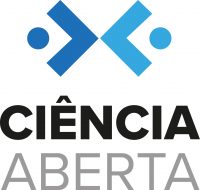Turismo na Montanha de Texcoco:
Um olhar desde as Resistências Descoloniais
Palavras-chave:
Turismo, Descolonialidade, Ancestralidade, Buenos Vivires, Texcoco [México]Resumo
El presente manuscrito busca ensayar el concepto de turismo descolonial a partir de la hibridación de géneros que se tejen entre la teoría y la evidencia empírica. Para ello se recurre a una sólida reflexión abstracta sobre el enfoque descolonial y se aborda desde un matiz paradójico con la actividad turística, con el objetivo de identificar la influencia de visiones alternativas del mundo y sentipensares respecto a otras formas de hacer turismo. Es posible afirmar la emergencia de propuestas turísticas alternas, cimentadas sobre la base de una conciencia crítica y social, ancladas a modelos económicos solidarios y con nuevas intersecciones entre naturaleza y cultura, lo cual podría constituir un paradigma emergente sobre las nuevas formas de aprovechar el tiempo libre y más específicamente de hacer turismo. Aspecto que se hizo evidente frente a las formas de desplazamiento de proximidad que se vieron beneficiadas frente a la pandemia Covid-19. Mediante un trabajo exploratorio de carácter inductivo se recuperó la experiencia empírica de tres colectivos, que sirvieron como punto de referencia para ir y venir entre la teoría y la realidad, para la conformación del presente ensayo. Se concluye que estas nuevas formas de hacer turismo están cimentadas en una perspectiva biocéntrica, relacionada con los saberes ancestrales transmitidos intergeneracionalmente y labrados en la interfaz entre naturaleza y cultura. Se plantea que estas tendencias podrían definir nuevas formas de concebir el turismo en el siglo XXI.
Downloads
Publicado
Como Citar
Edição
Seção
Licença
Autores que publicam nesta revista concordam com os seguintes termos:
Os Autores mantém os direitos autorais e concedem à revista o direito de primeira publicação, com o trabalho simultaneamente licenciado sob a Creative Commons Attribution License que permitindo o compartilhamento do trabalho com reconhecimento da autoria do trabalho e publicação inicial nesta revista.
Autores têm autorização para assumir contratos adicionais separadamente, para distribuição não-exclusiva da versão do trabalho publicada nesta revista (ex.: publicar em repositório institucional ou como capítulo de livro), com reconhecimento de autoria e publicação inicial nesta revista.
Autores têm permissão e são estimulados a publicar e distribuir seu trabalho online (ex.: em repositórios institucionais ou na sua página pessoal) a qualquer ponto antes ou durante o processo editorial, já que isso pode gerar alterações produtivas, bem como aumentar o impacto e a citação do trabalho publicado (Veja O Efeito do Acesso Livre).







